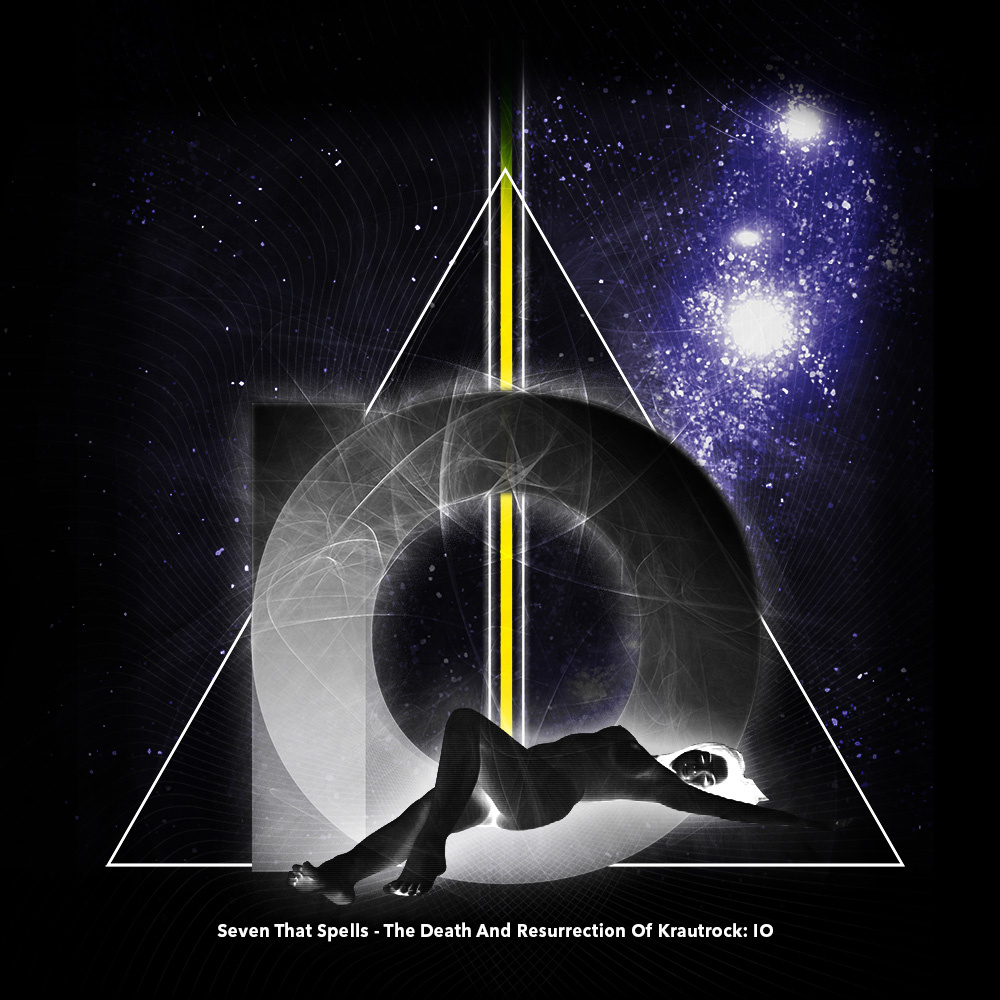Seven That Spells are a heavy psych/space/prog rock power trio based out of Zagreb, Croatia with a great line in self-promotion, describing themselves as a "modern, aggressive psychedelic wall of sound incorporating polymetrics and occasional Viking funeral rites, hailing from the 23rd century where rock is dead." More prosaically, they’re the brainchild of guitarist Niko Potočnjak, and since 2003 have been steadily releasing a series of albums with titles such as The Men From Dystopia, Future Retro Spasm and Superautobahn, some in collaboration with Makoto Kawabata of Acid Mothers Temple, a relevant reference point.
Having been on a variety of European labels, they’re now on Sulatron Records in Germany (set up and run by the excellent Sula Bassana), which may have inspired them to come up with the title of this album (part of a trilogy incidentally, oh yes). Their definition of Krautrock goes well beyond the trinity of Can, Neu! and Kraftwerk, and into the wilder realms of outliers like Amon Düül II and Agitation Free, as well as German bands such as Grobschnitt, Eloy and Hairy Chapter that have avoided the ever-so-slightly-patronising patina of "respectability" that the krautrock label confers among Anglo-American music fans.
So how does the music under that ambitious album title actually measure up? Simply put, this is the best example of guitar-driven hard prog/psych I’ve heard in some time – in fact, it blows out of the water a lot of the more feted groups who bandy around terms such as "psych", "kraut" and "cosmic" by dint of its technical focus and sense of direction throughout – no meandering, will-this-do? chugathons in search of a tune here.
This is apparent from the off. ‘In II’ starts with the sound of a kazoo(!) being blown over a massive fanfare of drums, revving the engine and then hitting the gas as a complex, eastern-leaning circular riff is played with dazzling precision. It’s math-prog, the dynamic of the track varied by the super-tight rhythmic undercarriage of bassist Jeremy White and drummer Nikola Babić, by turns driving, staccato and loose, but also keeping with the power of repetition that’s one of Krautrock’s central tenets. At 18 minutes, ‘Io’ is the longest track on the album and moves through a series of sections, but in a way that feels both logical and organic rather than randomly cobbled together. It starts with lots of chanting (the aforementioned Viking funeral rites I assume) and serpentine guitar in an upbeat indo-psych vein most recently epitomised by Goat, but again, the inventive drumming and incisive groove steer it clear of becoming a head-nodding bongofest. Then it drops to a drone of voices, Potočnjak’s guitar weaving through the space that’s opened up, building to a heavier recapitulation of the original theme before hitting the total freak-out button and finally delivering a truly impressive outburst of riffage. Super stuff.
‘One’ is a short piano piece over static, vaguely reminiscent of Sonic Youth’s ‘Providence’. Then ‘Burning Blood’ is the second of the album’s long tracks, the deep growl of throat singing added to the returning Viking chants, but this time the guitar is more taut and metallic. The track digs into a relentless mid-paced martial beat before another naggingly circular riff ups the tempo, the hammering finale seguing into the dial tone of an unanswered phone. Last track ‘Out II’ returns to the hypnotic prog of the opener, its descending riff played against a rising vocal drone making me wonder if these guys are trying to levitate the Pentagon all over again.
It’s a great album, and yet another reminder (if one were needed) that fantastic music is constantly being made, under the radars of the localised media the majority of us still rely on to tell us where the good stuff is.


